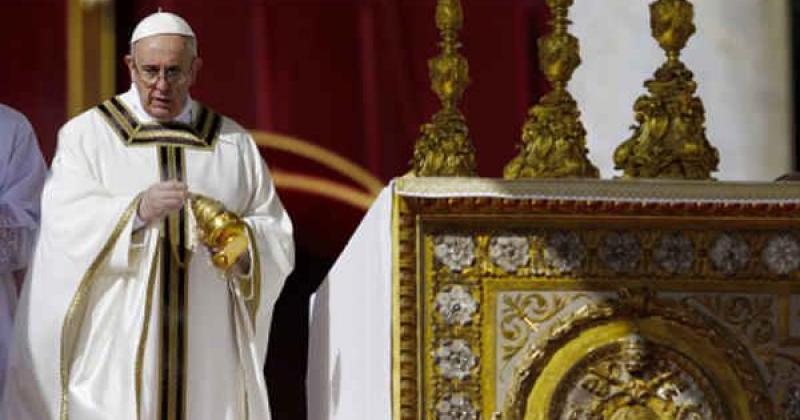The Pope brings interfaith dialogue to a region plagued by atrocities committed along religious lines.
Arriving in Jordan with old friends from other faiths, Pope Francis begins his Holy Land tour with an unprecedented move. It's the first time in Vatican history that a Pope has invited a Jewish rabbi and an Islamic leader on board an official delegation making its way to one of the world's holiest, and most contentious cities for worship in unison.
The pontiff's invitation demonstrates how "Interfaith Dialogue"--a developing conflict resolution tool--can work in a region long affected by atrocities committed along religious lines.
Archbishop Petar Rajic is head of the Vatican embassy in Kuwait and oversees Catholic activities across the Gulf. "Pope Francis is telling the world that we can all go to Jerusalem together and worship there, making it a common pilgrimage for all faithful," he told Al Jazeera.
It's all about using the power of spirituality to subdue conflict, an approach that's vigorously welcomed by Jordan. Dr. Mohammed Momani, the Hashemite Kingdom's minister for media affairs, told Al Jazeera that interfaith dialogue could have a profound affect beyond its national borders.
"The region is going through turbulence and the Pope's religious status will hopefully impact regional dynamics and enforce peace and security," he said.
"Jordan and other countries share the vision for the need for modest politics in the region which has been held hostage by extremism,hate speech and terror groups."
Archbishop Rajic said the Pope's visit was crucial, and that the interfaith approach has been needed for a long time. "A spiritual approach is always opportune for the Middle East, as it hasn't been without conflict for so long," he told Al Jazeera. "This is also a message for Syria to come to the negotiating table, to work towards peace, to stop the violence and war."
Father Rifat Bader, the director of the Vatican's media centre in Amman, says the one solution to end violence is for the faithful to adopt "the Pope Francis approach" because "religious cooperation among Muslims and Christians is a must".
"Cooperation and friendship between Muslims and Christians alone can resolve problems and bring justice and peace to the world," Bader said.
Bader explained that the true interfaith discourse pursued by Pope Francis must go beyond "tolerance" of the other. "Pope Francis is talking about friendship and not dialogue - he sees interfaith dialogue to be a conversation about life,a dialogue of life which is really about a dialogue of service," Bader said.
Archbishop Rajic said the Pope perfectly conveys this message, having met the pope several times. Francis is, he said, "a wonderful person who is very cordial, warm and friendly".
Rajic recalled the Pope's time as cardinal of Buenos Aires:
"He maintained good relationships with other religious leaders in Argentina, and now he is focusing on this even more--making it an even more important part of the church to reach out to other religions, to open up and to have a constant conversation with leaders of other faiths for co-existence and mutual respect--especially where all three major religions are present,such as in the Middle East."
But like any great ambition, it is not without risk. When dealing in the business of peace and diversity, religious leaders are also busy confronting more conservative voices.
In addition to internal confrontation, external conversation with the world continues as the Pope attempts to use the papacy as a vehicle for change.
The Pope is saying that "when I come and see you,it's all of us Christians coming to see you", said Mohammed Abu Nimer, a conflict resolution professor at American University in Washington DC.
"The message is very important. This is a very different and unique message that he is delivering."
But despite the sincere attempt at interfaith dialogue and a perceived growing need to open up and talk, the interfaith practictioners have much to learn - mostly about the practice itself. "We are looking at severely underdeveloped tools and frameworks," said Abu Nimer. "Right now, we have no measure of how successful an interfaith project is; it’s very difficult."
Archbishop Rajic said the security of long-lasting results from interfaith dialogue comes down to local leadership in schools, churches, mosques and synagogues - and a desire to continuously learn about one's own faith and the faith of others.
"What I find interesting is drawing on commonality," said the archbishop,"making people more aware of their need for spirituality and for God in general."
